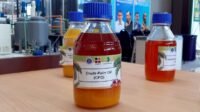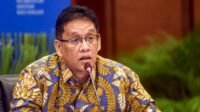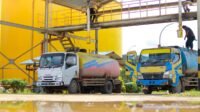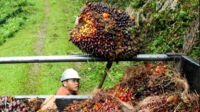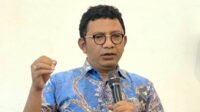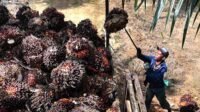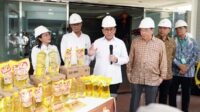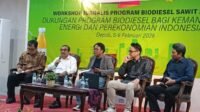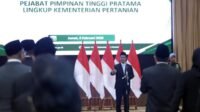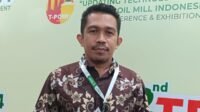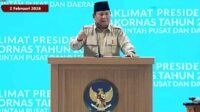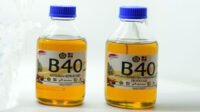PALMOILMAGAZINE, JAKARTA — Indonesia’s palm oil industry continues to play a vital role in the national economy. Amid growing global scrutiny over sustainability, the Palm Oil Plantation Fund Management Agency (BPDPKS) reported a strong performance in 2024, with palm oil export levy collections reaching Rp25.76 trillion—exceeding the initial target of Rp25 trillion.
The revenue came from levies on exports of crude palm oil (CPO) and five of its high-volume derivative products, including RBD palm olein (10.4 million metric tons), RBD palm oil (5.1 million MT), palm kernel shell (4.87 million MT), palm kernel meal (4.48 million MT), and CPO itself (2.7 million MT). In addition to levies, BPDP also earned Rp2.95 trillion from fund management activities—far surpassing the target of Rp557 billion.
In 2024, 84.22% of the managed funds were placed in time deposits, while 15.78% were invested in government securities (SBN). These funds serve as a key source of financing for national palm oil development programs.
Also Read:
In 2025, the government raised the CPO export levy from 7.5% to 10%, as stipulated in a regulation signed by Finance Minister Sri Mulyani Indrawati, which took effect on May 17, 2025. This increase is expected to boost BPDP’s financial capacity to support vital programs, particularly those targeting independent smallholder farmers.
Despite these gains, independent smallholders—the backbone of the palm oil supply chain—continue to face major challenges. Low productivity, limited access to finance and training, and a lack of support for transitioning to sustainable practices remain persistent issues.
“The rise in export levies must serve as a pathway to sustainable palm oil,” said a representative of the Indonesian Sustainable Palm Oil Farmers Forum (FORTASBI), as quoted by Palmoilmagazine.com on Tuesday, June 17, 2025.
He emphasized that the sizable funds managed by BPDP should be directed toward farmer replanting programs, infrastructure support, sustainability certification, training, and downstream initiatives that increase product value.
According to FORTASBI, sustainability certifications such as Indonesia Sustainable Palm Oil (ISPO) and Roundtable on Sustainable Palm Oil (RSPO) are not just labels—they are essential for maintaining access to international markets. Therefore, support for smallholders must be tangible and continuous.
As the world’s largest palm oil producer, Indonesia must now address global challenges by strengthening its grassroots—its farmers. The substantial funds collected through export levies demonstrate the state’s ability to sustain this industry’s ecosystem. The critical question now is: how significantly can those funds transform smallholders into empowered, competitive, and sustainable actors in a fair and future-proof palm oil supply chain. (P3)






